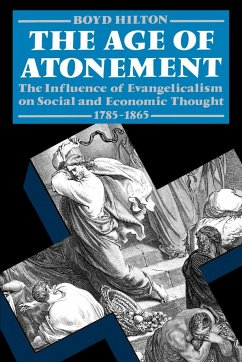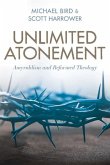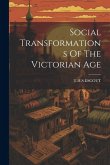In the 1850s and 1860s, however, a different attitude to social problems developed along with evolutionary approaches to the physical and animal worlds and a new understanding of God, who came to be regarded less as an Arnoldian headmaster and more like Santa Claus. At the centre of this ideology, and throwing light upon it, was a new way of understanding the Atonement.
In this study of the British upper and middle classes during the first half of the 19th century, Boyd Hilton reveals that the people of this age were obsessed with catastrophe: wars, famines, pestilences, revolutions, floods, volcanoes, and the great commercial upheavals which periodically threatened to topple the world's first capitalist system. The dominant evangelical sentiment of the day interpreted such sufferings as part of God's plan and, not wanting to interfere with the dispensations of providence, governments took a harsh, stand-on-your-own-feet attitude towards social underdogs, whether they were bankrupts or paupers. In this work, Hilton studies how the transformation of religious thought--including new ideas about the nature of God and the Atonement--affected the economics, philosophy, science, and politics of the period.
Hinweis: Dieser Artikel kann nur an eine deutsche Lieferadresse ausgeliefert werden.
In this study of the British upper and middle classes during the first half of the 19th century, Boyd Hilton reveals that the people of this age were obsessed with catastrophe: wars, famines, pestilences, revolutions, floods, volcanoes, and the great commercial upheavals which periodically threatened to topple the world's first capitalist system. The dominant evangelical sentiment of the day interpreted such sufferings as part of God's plan and, not wanting to interfere with the dispensations of providence, governments took a harsh, stand-on-your-own-feet attitude towards social underdogs, whether they were bankrupts or paupers. In this work, Hilton studies how the transformation of religious thought--including new ideas about the nature of God and the Atonement--affected the economics, philosophy, science, and politics of the period.
Hinweis: Dieser Artikel kann nur an eine deutsche Lieferadresse ausgeliefert werden.








